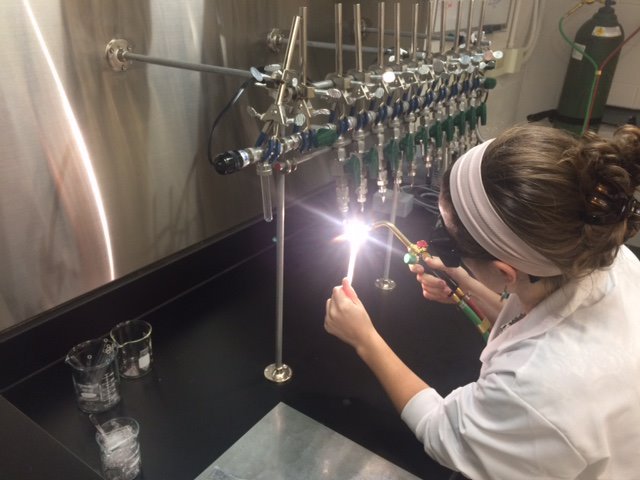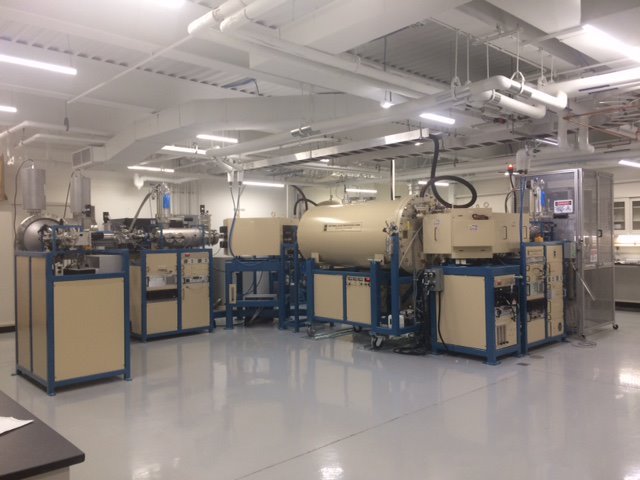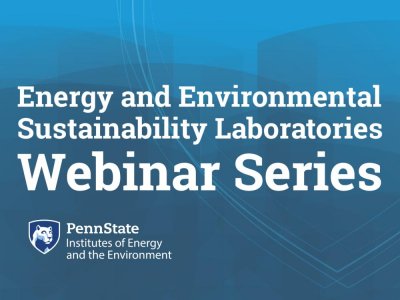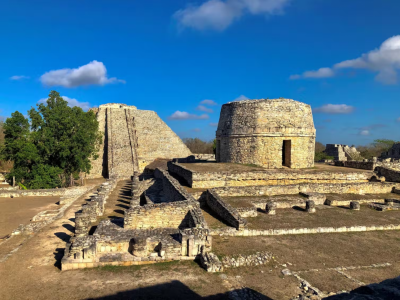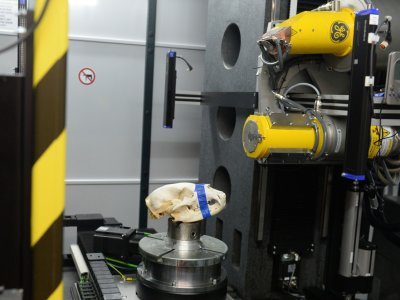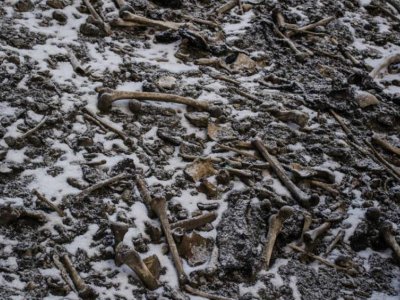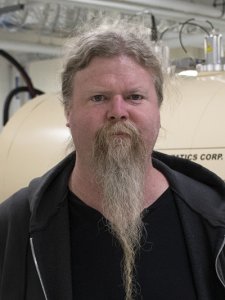Accelerator Mass Spectrometry at Penn State
Penn State's Radiocarbon Laboratory provides radiocarbon measurements on carbon-bearing materials spanning the last 45,000 years. This includes materials such as wood, charcoal, bone, carbonates, and soils from the Pleistocene and Holocene time periods.
The lab's services are available to Penn State researchers and external academic and industrial clients.
Our lab staff can assist with developing research designs, sampling strategies, and analysis of radiocarbon data at every stage of their projects from conception to conclusion. Additionally, they have extensive experience using radiocarbon in diverse fields including:
- Archaeology
- Geology
- Paleontology
- Paleoecology
- Art History
- Climate Reconstruction
Our collaborations on interdisciplinary projects have been published in multiple journals, including Science, Nature Geoscience, PNAS, Quaternary Science Reviews, and Quaternary Research.
Work with us
The Radiocarbon Lab is available to assist both Penn State researchers and external clients from industry, government, and other universities. Get started:
What is radiocarbon dating?
All living things contain radiocarbon or 14C. When an organism stops incorporating carbon from the environment into its cells and molecules—usually when the organism dies—the amount of 14C begins to decrease as 14C decays into nitrogen. The rate of this decay is also known as the half-life. Radiocarbon dating is carried out by measuring the ratio of radioactive 14C to stable 12C to estimate the age of organic carbon-containing material.
Capabilities
Sample Preparation
Facilities to process almost any carbon-containing material
Accelerator Mass Spectrometer
Sample analysis
The Radiocarbon Lab at Penn State offers preparation and high-precision 14C measurement on relatively small samples of the following materials.
|
Material |
Recommended amount |
|---|---|
|
wood (unburned) |
20-100 mg |
|
charcoal |
5-50 mg |
|
bulk sediment/peat |
10-100 g |
|
bone |
200-1000 mg |
|
bone collagen |
>5 mg |
|
hair/fibers |
10-100 mg |
|
carbonates |
25-50 mg |
|
calcined bone |
1-5 g |
The Radiocarbon Lab produces precise and accurate radiocarbon measurements. However, that 14C/12C ratio will be most useful if your samples are carefully chosen to answer your research question.
Contact the Radiocarbon Lab staff with questions about samples, including which samples would be most informative, what types of samples should be collected and how, or what type of organic material from a mixed sample is the best to analyze. Please provide as much information about the research question as possible in order to allow lab staff to fully assist.
Our Guide to Radiocarbon Sampling is a handy summary of how to avoid the common pitfalls of radiocarbon collection.
In the News
Radiocarbon Universe Webinar Series Recordings
The Radiocarbon Universe webinar series shares diverse topics and applications related to radiocarbon dating. The series is designed to lay the conceptual foundations for a lay audience to understand the research and deliver engaging talks to inspire and entertain. More details and recordings of the presentations are available at the following links.
- Fundamentals of Radiocarbon
- Radiocarbon Chronology: Calibration, Reservoirs, and Caveats
- Settlement and Extinction Chronologies of Madagascar
- Radiocarbon in Archaeology, Paleoecology, and Paleontology: Case Studies from South America
- AMS Satellite Radiocarbon Prep Lab: Interdisciplinary Case Studies from the University of Nevada, Reno
- Radiocarbon Dating Paper Documents and Photographs
- The Development of Exact-Year Radiocarbon Dating
- Reconstructing prehistoric human demography using end-to-end Bayesian analysis of radiocarbon dates
- Direct dating of 52 human skeletons and isotopic dietary evidence for early maize consumption from two rock-shelters in the Maya Mountains of Belize
- Tracing Past Ecosystems and Hydroclimate: Radiocarbon as a Versatile Tool for Speleothem Research
Radiocarbon Lab Staff
Address
Radiocarbon Laboratory
Land and Water Research Building
781 Hastings Road
University Park, PA 16802

